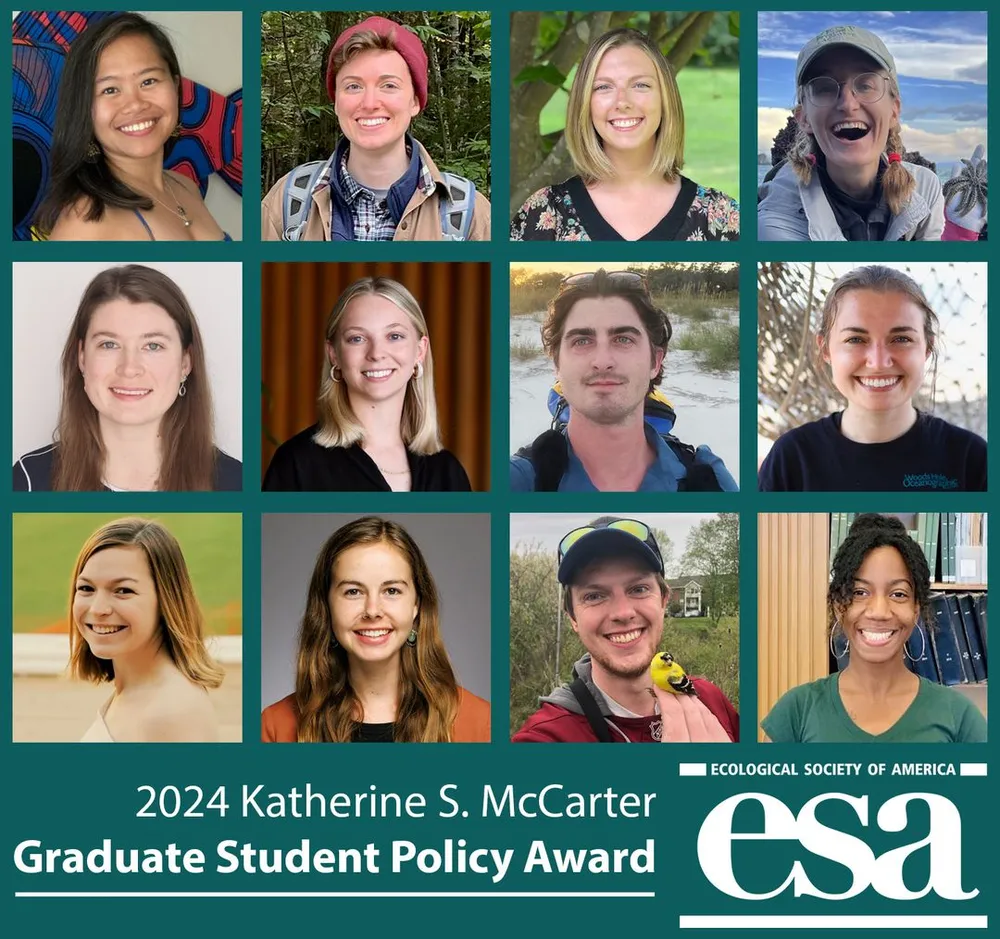
The Ecological Society of America is pleased to announce the recipients of the 2024 Katherine S. McCarter Graduate Student Policy Award (GSPA). Students in the 2024 cohort are engaged in advocacy with an interest in science policy. Awardees will travel to Washington, D.C., for policy, communication and career training followed by meetings with lawmakers on Capitol Hill.
“I am thrilled to welcome this latest cohort of Graduate Student Policy Awardees,” said ESA President Shahid Naeem. “The caliber of this year’s awardees, as has been true for awardees in our program since its inception, reflects a promising future for ecological research and policy advocacy. These exceptional students exemplify the Society’s commitment to nurturing innovative minds dedicated to addressing our most pressing scientific and environmental challenges.”
This year 12 students received the 2024 GSPA award: Jem Baldisimo (Old Dominion University), Emerson Conrad-Rooney (Boston University), Jeannette E. Cullum (University of Illinois Urbana-Champaign), Megan M. Davis (Oregon State University), Laurel C. Field (Florida State University), Hannah A. Henry (Auburn University), Garrett J. Knowlton (University of Wisconsin-Madison), Helena McMonagle (University of Washington), Kaitlyn E. Meadows (Clemson University), Sophia C. Roberts (Yale University), Isaac J. VanDiest (Virginia Tech) and Kandake May Wallace (Florida A&M University).
...

Jeannette E. Cullum is a Ph.D. candidate and NSF Graduate Research Fellow in the Program in Ecology, Evolution and Conservation Biology at the University of Illinois Urbana-Champaign (UIUC). She studies the impact of anthropogenic stressors on disease dynamics in freshwater ecosystems. Her research seeks to integrate experimental, field and theoretical ecology to elucidate complex interactions in these systems. Cullum is also interested in how research can be made accessible to broader audiences, such as policymakers and K–12 educators, and how it can be used to implement changes to federal law like the Clean Water Act. Currently, she is creating a K–12 curriculum unit related to her research where students investigate how pollution affects lake ecosystem health. She is involved with outreach in the community as well, participating in summer camps and after-school programs. Cullum received a B.S. in molecular and cellular biology with a minor in chemistry from UIUC, during which she participated in research with honey bees investigating the link between genes and behavior.